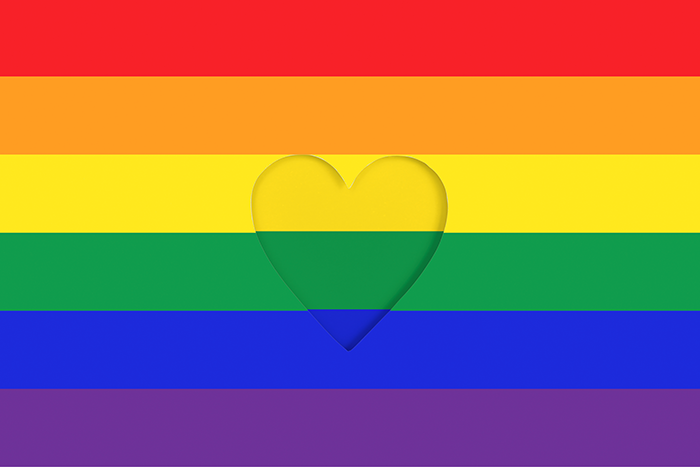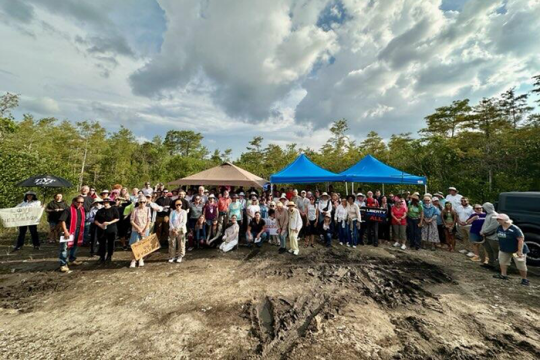
In June, the Supreme Court released a decision in 303 Creative, Inc. v. Elenis expanding the right of businesses to discriminate against LGBTQ+ people. This case arose after a Colorado wedding website designer sued the state in federal court, arguing that the Colorado Anti-Discrimination Act, which prohibits discrimination on the basis of sexual orientation in public accommodations, violates her religious beliefs. In a 6-3 decision, the Supreme Court ruled in favor of the website designer.
The decision allows business owners to use personal beliefs as a justification for discriminating against LGBTQ+ people when selling custom goods or services. Although this ruling does not authorize discrimination in all public accommodations, the creation of a broad new free speech exemption for such businesses opens the door to further discrimination against LGBTQ+ people, as well as religious minorities and other marginalized groups. While this decision does not overturn recent marriage equality and employment non-discrimination victories, changing attitudes about the LGBTQ+ community combined with the hate roused by this decision may inspire additional discriminatory behavior and disgusting public discourse about LGBTQ+ communities.
The potential for business owners and other service providers to discriminate on the basis of sexual orientation is intimidating. This is the first time that the Court has ruled that a business offering custom , "expressive" services may discriminate against LGBTQ+ individuals. This decision could apply to a wide range of services, including baking a cake, designing a website, tailoring clothing, and other creative activities. While this exemption is fortunately limited to a narrow category of businesses, the decision opens the door to future litigation authorizing much wider discrimination against LGBTQ+ people.
Moreover, this decision adds to the assault on LGBTQ+ communities. Already in 2023, there have been over 500 hundred bills introduced in state legislatures across the country that attack the LGBTQ+ community - especially LGBTQ+ children. These include laws prohibiting gender-affirming medical care, restricting transgender participation in school athletics, censoring curricula that are LGBTQ+ inclusive, banning drag shows, and more, all of which damage LGBTQ+ communities across the country.
The Reform Jewish Movement has long supported LGBTQ+ equality, beginning in 1965 when the Women of Reform Judaism called for the decriminalization of homosexuality. We have been proud to support major advancements in LGBTQ+ rights, including the Supreme Court decisions in Obergefell v. Hodges and Bostock v. Clayton County and the passage of the Respect for Marriage Act last year. In recent years, the Union for Reform Judaism and Central Conference of American Rabbis passed historic resolutions affirming the rights of transgender and gender-nonconforming people.
Our support for LGBTQ+ equality is guided by values embedded in our Jewish text and tradition, including the belief that all people are created b'tzelem Elohim - in the Divine image (Genesis 1:27). The Mishnah builds on this core teaching: 'when humans stamp coins with one seal they are all identical but the Holy One stamps every human being uniquely so that none is like another' (Mishnah Sanhedrin 4:5). From this, we learn that all people, even in their diversity, deserve dignity and respect. As Reform Jews, we know that deep faith and a commitment to LGBTQ+ equality are not mutually exclusive - and, as we argued in an amicus brief alongside 30+ religious, civil rights, and grassroots organizations, nondiscrimination laws must carefully balance civil rights and religious freedom. The Court's ruling undermines this critical balance.
While the 303 Creative ruling is a step backwards in our pursuit of building an equitable and just society, the fight to protect LGBTQ+ communities is not over yet--we must commit ourselves to action. Here are some of the many, potentially lifesaving actions you can affirm and celebrate the LGBTQ+ community and advocate for LGBTQ+ rights:
- Tell your state legislators to stop attacks on LGBTQ+ people
- Urge Congress to pass the Equality Act to provide federal civil rights protections on the basis of sexual orientation and gender identity
- Download the Transgender Inclusion Resource Guide from the RAC and Keshet
- Read the URJ's Quick Guide to Pronouns and normalize the use of pronouns in your community
Related Posts

Bearing Witness at "Alligator Alcatraz"

RAC-NY: The 2025 NY Legislative Session Report

